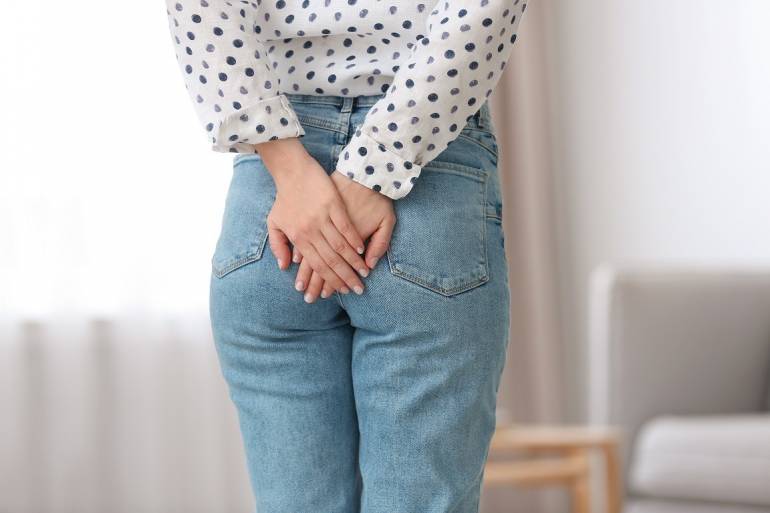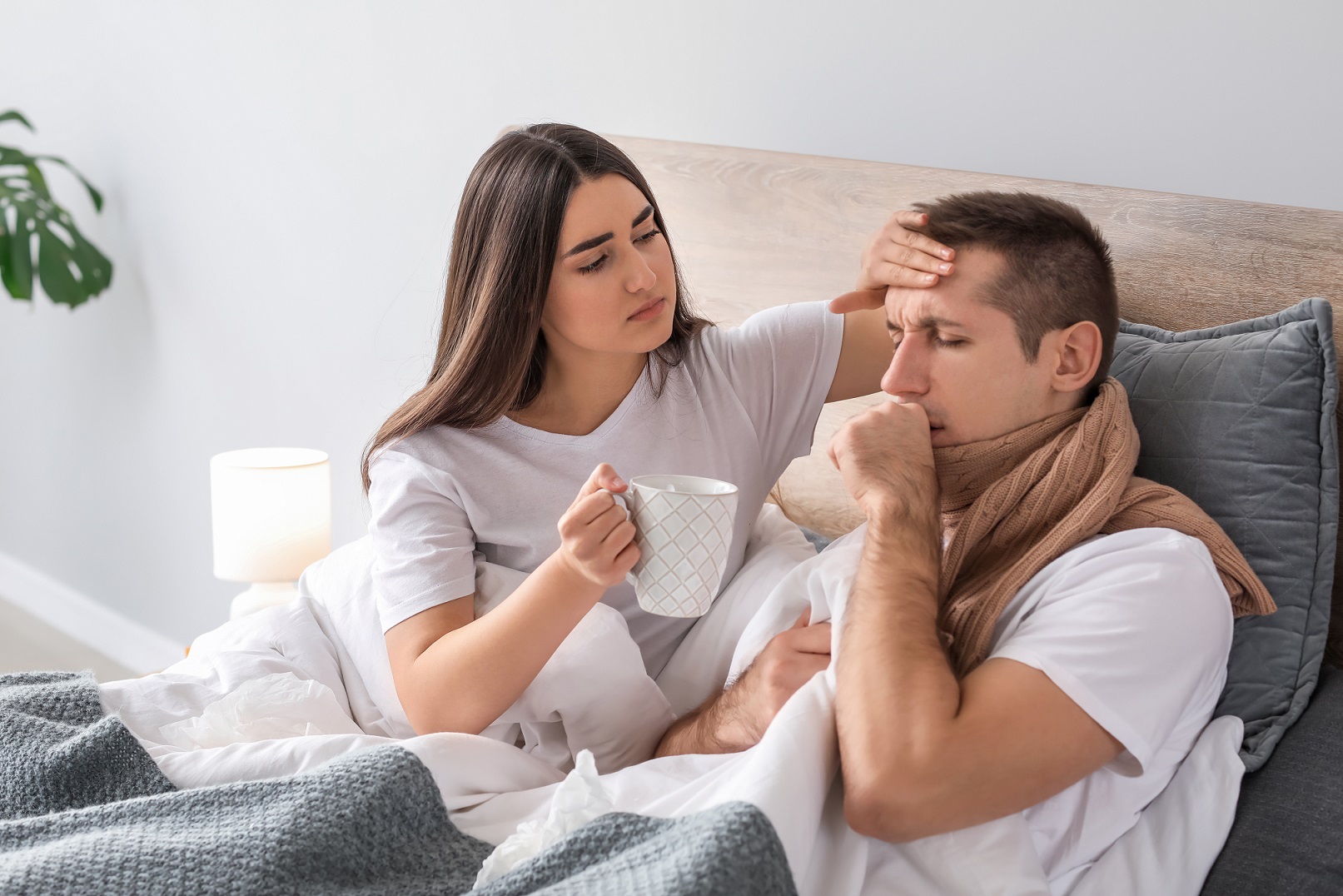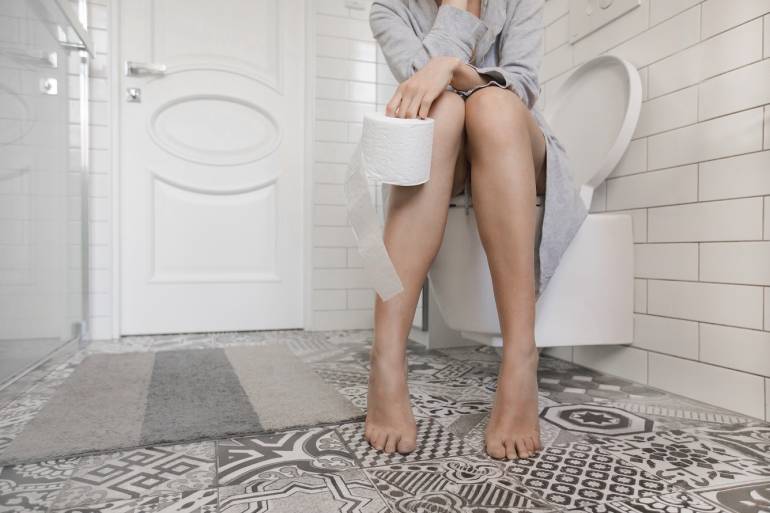Hemorrhoids can occur at any age. Sedentary lifestyle, low physical activity, stress, constipation, excess coffee and tea, drinking too little fluids make it a problem that often affects young women as well . The risk of their development significantly increases during pregnancy and after childbirth. How to prevent them? How to cope when the first symptoms of hemorrhoids appear? We suggest.
Hemorrhoidal disease is a fairly common ailment, resulting from excessive stretching of the walls of blood vessels in the anal area. Hemorrhoids is in fact the term for the cushy structures that are physiologically responsible for sealing the anal outlet. Healthy hemorrhoids do not produce any alarming symptoms. It is only when hemorrhoids become overstretched and blood backs up in them that inflammation develops. Then the first symptoms of anal varices appear. And this is a clear signal to start treatment.
It is estimated that nearly a third of the population struggles with hemorrhoidal disease at some point in their lives. The culprits include a sedentary lifestyle and poor diet, resulting in constipation, which promotes the development of this unpleasant ailment. This problem affects both sexes, although it may occur more often in women. Why? Because of hormonal fluctuations and an increased predisposition to anal varices during pregnancy and the postpartum period.
Causes of hemorrhoids in women
Although this condition has a hereditary basis, the vast majority of risk factors for developing hemorrhoids are due to lifestyle. Both inactivity and intense and regularly repeated physical exertion in certain activities promote the development of anal varices. Leading a sedentary lifestyle causes blood stasis in the vessels and the formation of edema, and this is a simple path to hemorrhoidal disease.
Diseases and functional problems of the digestive system that affect the frequency of bowel movements also contribute to the development of anal varices. Constipation and difficulties with bowel movements, but also diarrhea, promote the development of inflammation around the anus.
Hemorrhoids in women also often appear during pregnancy. Large changes in the body during this period favor hemorrhoidal disease, especially in those ladies who have a genetic predisposition to it.
What are the causes of hemorrhoids in pregnancy?
This is an ailment quite commonly affecting pregnant women. Several factors contribute to the appearance of hemorrhoids during pregnancy:
- genetic predisposition,
- Intense hormonal changes, including, most notably, an increase in progesterone; this hormone affects the condition and tension of veins, which is directly related to the accumulation of blood in them and the occurrence of edema,
- The pressure of the enlarging uterus on the large blood vessels, resulting in a slowing of blood flow and dilation of the veins running below the uterus; as a consequence, swelling occurs, and the blood pushing against the vessel walls causes them to stretch, become inflamed and develop rectal bleeding nodules,
- Constipation – this is a particularly troublesome problem during pregnancy; intense pushing on the rectal muscles and “sitting” on the toilet promote the development of hemorrhoids.
The first symptoms of hemorrhoids – how to recognize them?
The first symptoms that inflammation is developing in the anal area are quite characteristic. They are mainly itching and pain, a feeling of discomfort and a sensation of incomplete bowel movement after a visit to the toilet. The pain increases as the disease develops, in some patients bleeding may occur during bowel movements. And this is already a clear signal that treatment should be started.
As the disease progresses, symptoms worsen, and hemorrhoids may also fall out of the anal fissure. It is important to put them back in the anus, and then go to a specialist for diagnosis and consultation. Therapy should be started immediately, as untreated nodules can lead to more serious tissue damage, worsening swelling and thrombosis.
Where to start in treating hemorrhoids?
It is best to start treatment at the first symptoms. It is a good idea to use home remedies or over-the-counter gels and ointments for hemorrhoids based on horse chestnut extract, available at the pharmacy. It has astringent and anti-inflammatory properties. Reach for hemorrhoid medications with anesthetics to help relieve unpleasant pain.
Due to the high risk of developing hemorrhoids during pregnancy, it is especially important to take care of prevention during this period. If bothersome symptoms appear, you can use home remedies for hemorrhoids, as well as ointments and rectal gels applied topically to relieve pain and irritation. However, it is worth remembering that treatment of hemorrhoids during pregnancy and the use of any preparations should be consulted with a specialist.
How to prevent hemorrhoids in women?
To guard against hemorrhoidal disease and unpleasant discomfort, remember the 5 basic principles of prevention:
- A diet rich in fiber. Vegetables and fruits, preferably eaten raw, are a rich source of dietary fiber, which regulates intestinal motility and prevents constipation.
- Lots of healthy fluids. Drink plenty of still water, freshly squeezed fruit and vegetable juices and herbal teas, such as herbs for digestion, among others. Not only will they hydrate the body, but they will also prevent the content of the digestive tract from lingering and causing difficulty with bowel movements. Avoid strong coffee and tea.
- Regular exercise. A regular brisk 30-minute walk stimulates circulation, preventing venous stasis and edema. During pregnancy and after childbirth, remember to exercise your pelvic floor and Kegel muscles. They strengthen the urethral muscles and stimulate circulation in the pelvic area.
- Hygiene of intimate places. Try to wash after each bowel movement, using gentle products. When visiting the toilet, do not tighten the rectal muscles intensely. This leads to increased pressure in the vessels and stretching them.
- Airy underwear. Avoid clothes made of artificial materials, let your skin breathe.
What else is worth avoiding to prevent hemorrhoids? It is worth eliminating alcohol and excessive amounts of coffee and tea. An easily digestible diet and regular meals help regulate the digestive system and reduce the risk of the disease.







